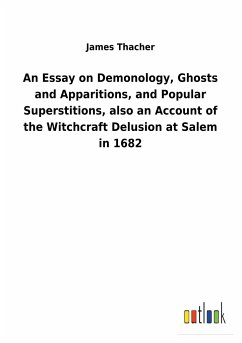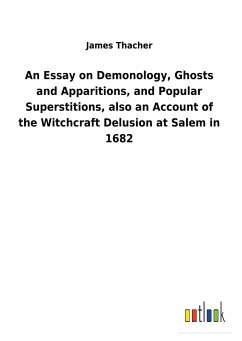In "An Essay on Demonology, Ghosts and Apparitions, and Popular Superstitions," James Thacher presents a comprehensive exploration of the supernatural phenomena that captivated 18th-century society. Through a meticulous analysis of historical accounts, folklore, and personal anecdotes, Thacher employs a rational and methodical literary style, reflecting the Enlightenment's tension between reason and superstition. The work is adeptly contextualized within the era's burgeoning interest in empirical evidence, positioning it as a critical examination of the beliefs that permeated both scholarly discourse and popular culture, while also bridging the gap between skepticism and belief in the mystical. James Thacher, a physician and a prominent figure in the early American intellectual landscape, was influenced by the intersection of science and spirituality in his contemporary milieu. His professional background afforded him a unique perspective on the psychological implications of supernatural beliefs, as well as their societal ramifications. The synthesis of his medical knowledge and philosophical inquiry allowed Thacher to approach the topic with a blend of inquiry and empathy, reflecting his understanding of human nature and the propensity for the miraculous within human experience. This book is essential for scholars of literature, history, and psychology, as it provides not only a deep dive into the historical context of superstition but also serves as a reflection on the human condition's grappling with the unknown. Readers intrigued by the interplay of reason and folklore will find in Thacher's essay a rich terrain for exploration and contemplation.
Bitte wählen Sie Ihr Anliegen aus.
Rechnungen
Retourenschein anfordern
Bestellstatus
Storno








